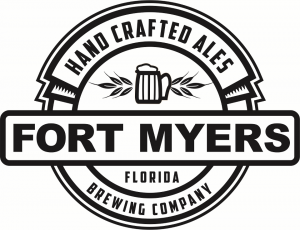After all, in addition to her life as a brewer, she’s known for going up against the status quo. In October 1997, a few years after the University of Michigan rejected her admission, Gratz served as the lead plaintiff in Gratz v. Bollinger, a case eventually decided by the U.S. Supreme Court that limited the scope of existing affirmative action laws regarding college admissions.

Shortly after her rejection from the school, the Center for Individual Rights contacted Gratz, who is white, and filed a lawsuit. The eventual decision softened affirmative action statutes, with the justices ruling that admission offices may consider race as a factor of admission, but not as an automatic boost.
Gratz never went to the University of Michigan, but, she says, “I learned that communities like people who are risk takers for the right things.”
It might be a long way from the Supreme Court to Fort Myers — let alone from Ann Arbor — but Gratz still hasn’t left the case behind her. Now in South Florida, among her parents and other family members, where she works with her husband, Rob Whyte, as the only employees of the nearly three-month old brewery, Gratz is still politically active, running The XIV Foundation, a nonprofit civil rights advocacy group.
But there’s a line between Gratz, the public figure, and Gratz, the publican.
“I try not to bring my political beliefs into my business,” she said.
But that second life is actually becoming more relevant as the brewing community becomes more heavily embroiled in regulatory issues. While affirmative action isn’t likely to crop up in alcohol regulations, Gratz hasn’t been afraid to show that she knows how to move the wheels of government to help the craft beer industry.
In April, Gratz used her political background to substantiate a letter to state Representative Debbie Mayfield and other Florida Republicans. In the letter, she mentioned her brewery and the fact that the state’s law permits her to sell two 32 oz. growlers to the same person and gallon size growlers, but not 64 oz. growlers. She called this “asinine,” but said that she expects good news soon.
Gratz isn’t alone in her efforts to change growler laws in the state. Joey Redner, the founder of Cigar City Brewing Company in Tampa, Fla., has been pushing for updated growler legislation for several years. He said that legislators in Tallahassee have connections with distributors because of paid lobbyists, which leaves breweries south of the capital outside of the decision-making process. Redner said that he supports any political craft brewers in Florida who care about their beer and can influence legislation.
“I think anyone with some political savvy can definitely be beneficial to the industry,” Redner said. “We’re really in our infancy.”
As Gratz continues to push for growler legislation, one thing’s for sure — neither breweries nor court cases are made overnight; it took six years for Gratz’ lawsuit to be decided, in 2003. At that point she had been married to Whyte for about a year, and was living in San Diego, having graduated from the University of Michigan-Dearborn in 1999.
But she had her heart set on changing things in her home state. So for three years, while Whyte worked in San Diego and volunteered as a brewer at Oceanside Ale Works, she worked in Michigan, where she started the Michigan Civil Rights Initiative, a ballot measure that led to further restrictions on affirmative action programs that gave preferential treatment in the state’s contracting, employment and higher education. Gratz averaged three weeks of work in Michigan and three to four days of respite back in San Diego over that time.
On one of her trips back to San Diego, Gratz returned home and saw a hose dangling out of the front door. She initially thought there were plumbing problems. She walked into the house and found the hose connected to the sink and glass containers sitting around the kitchen. She opened the fridge and found no shelves, only kegs. This was her introduction to homebrewing.

“We turned a hobby into a business,” Gratz said.
When Gratz and Whyte moved to Florida, they found that there wasn’t a microbrewery to serve the many transplanted citizens of the area. With Whyte’s affinity for homebrewing and Gratz’s entrepreneurial mindset, which she said developed because of the case, they launched the brewing company with the goal of unpretentious, localized quality.
With a 7-barrel brew system and 21-barrel fermenters, they currently offer honey blonde ale, pale ale, american amber and smoked vanilla porter among others. A few months into the process, they’re struggling to meet demand, just like the sea of other successful startup craft brewers across the country.
“There’s a ton of interest from local bars and restaurants, we just can’t keep up,” she said. “Our tasting room is packed every day that we’re open.”
Yet despite the busy schedule created by the brewery’s early success, there are many steps along the path of starting a business that rehash memories of the case. Gratz said that while the state and county have been easy to work with regarding the brewery, she had some issues at the federal level.
When she applied for a federal license to operate the brewery, the website said that the average wait time is 53 days. Gratz said her application was routine: no investors, no historical buildings. She just wanted to start a brewery in an industrial park. Another brewery in the area applied one week before her and received their license on time. Gratz said she had to wait about 175 days for her license and she thinks there’s a reason for the delay. She mentioned the recent IRS scandal and said that it’s possible she was victimized for her past.
For Gratz, the politically-minded brewer, these conflicts present nothing new.
“I’ve definitely learned to take the good and the bad in stride over the course of the last 15 to 20 years,” Gratz said.
